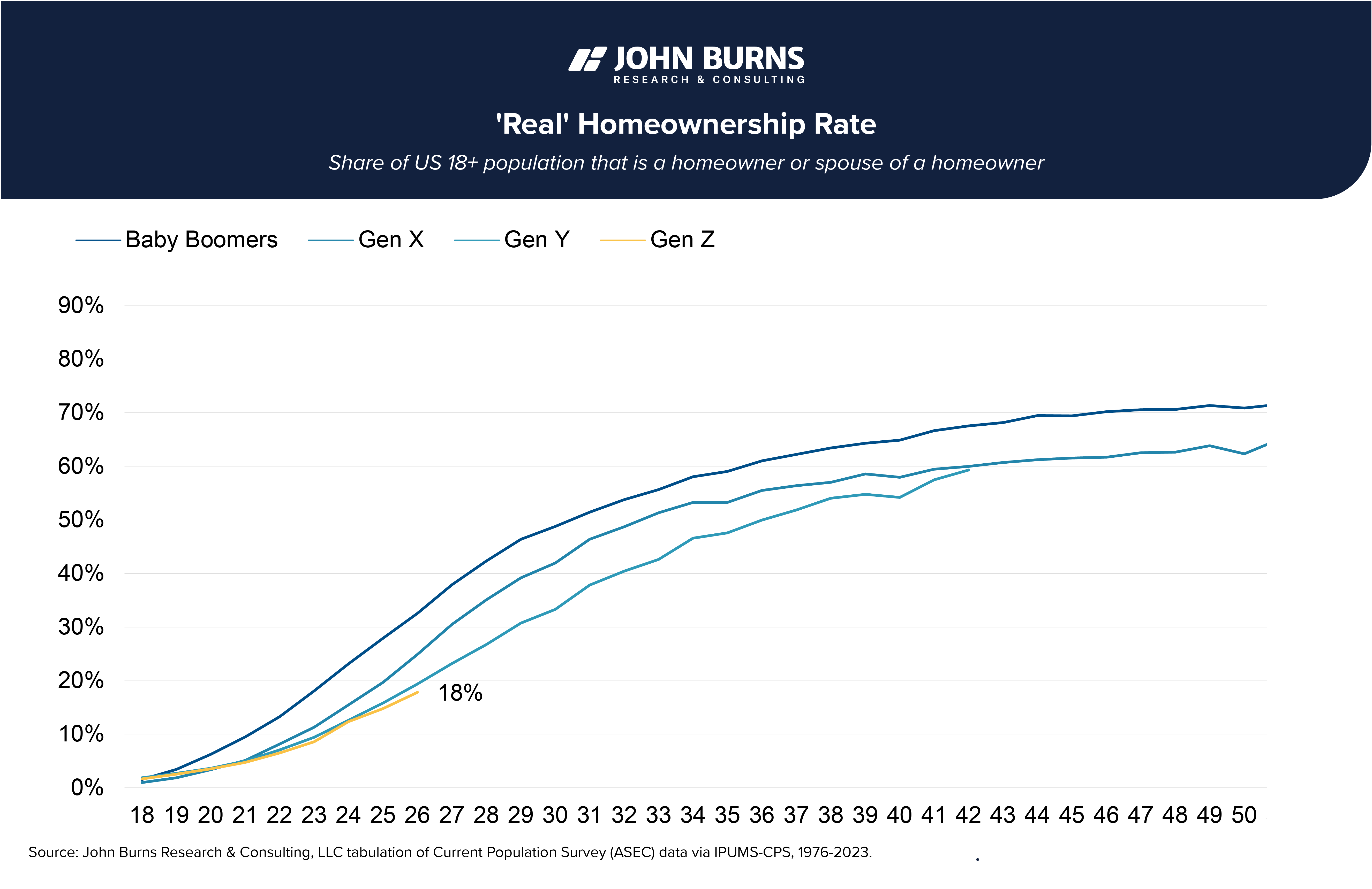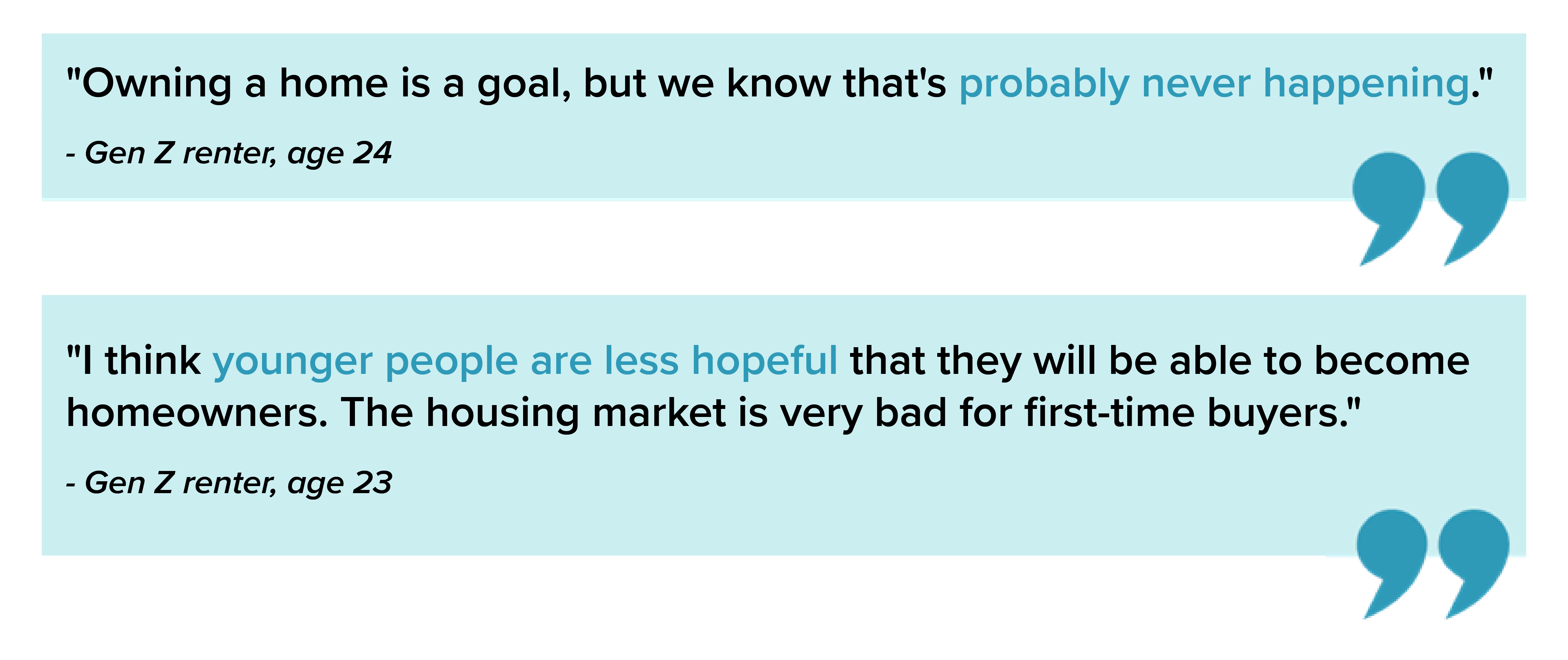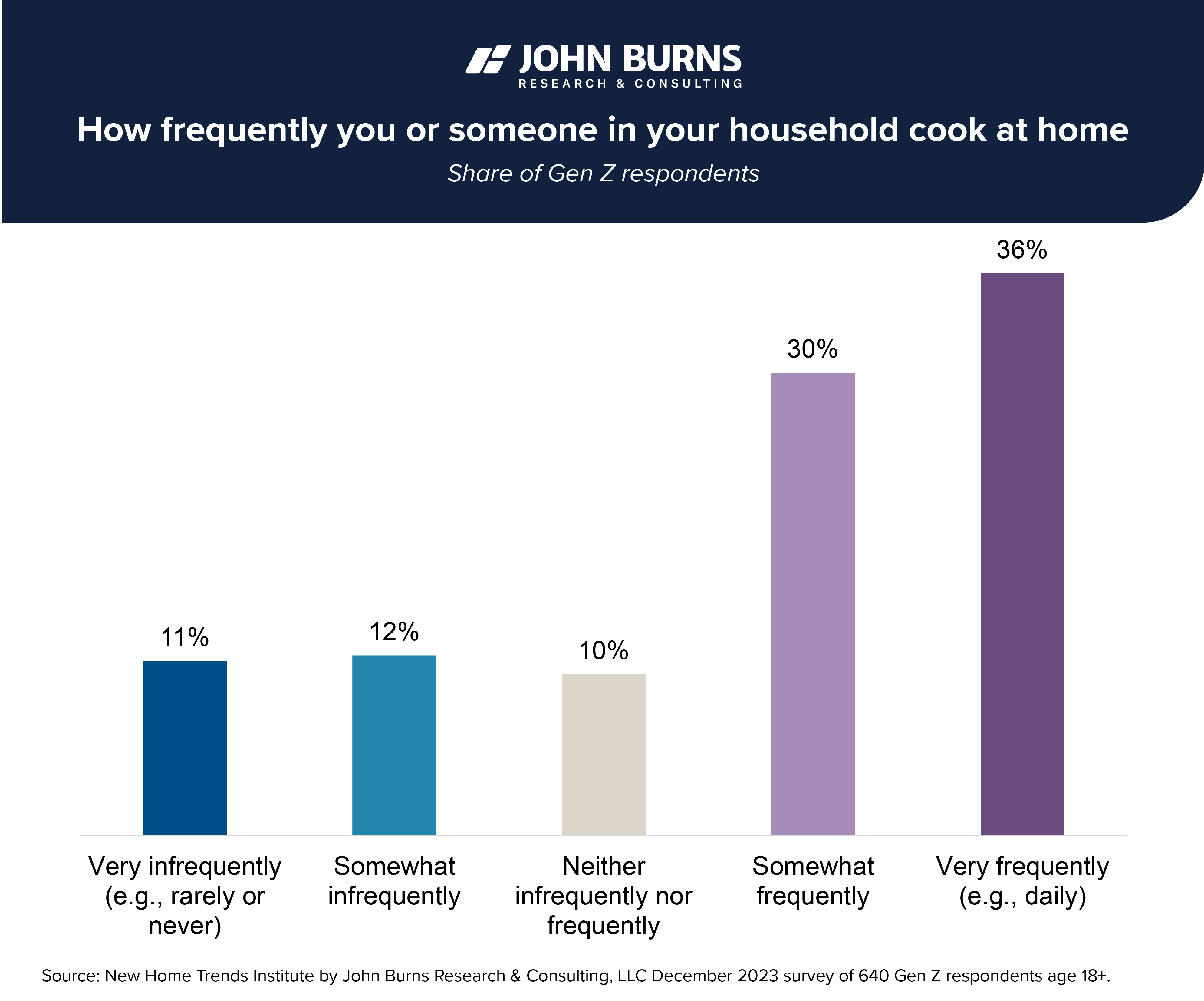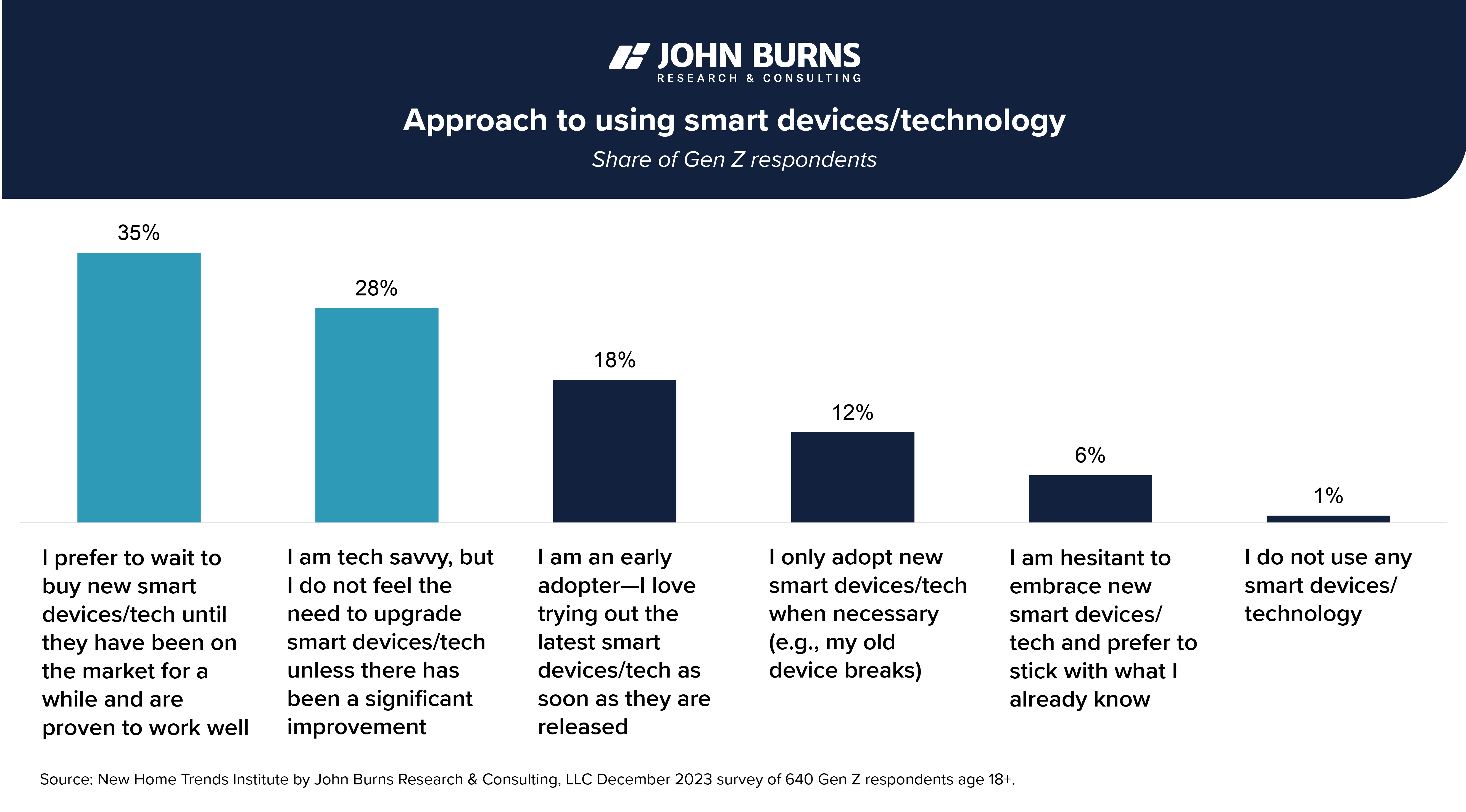There are 46 million 18- to 27-year-olds in the US today.1 Anecdotes about this adult cohort of Gen Z abound, and not all are true. To prepare for Gen Z’s journey into homeownership, here are four myths you may need to reconsider.
- Myth #1: Gen Z owns more homes than millennials did at their age.
- Myth #2: Gen Z simply doesn’t care as much about homeownership.
- Myth #3: Gen Z doesn’t cook.
- Myth #4: Gen Z consumers are all early tech adopters.
These findings are from our New Home Trends Institute’s January Survey Insights Report: Gen Z’s Journey into Homeownership, where we surveyed 640 Gen Z respondents age 18+. The New Home Trends Institute is a subscription membership that drives collaboration among industry leaders, fueled by consumer and design research.
Myth #1: Gen Z owns more homes than millennials did at their age.
Recent articles claim that Gen Z is more likely to own homes than millennials were at a similar age. This claim holds true when we look at Gen Zers who have established their own households (what the Census calls “homeownership rate”). Using this metric, they are indeed more likely to own than millennials. Yet, if we examine the entire Gen Z population, including those living with family or roommates, they are less likely to be homeowners than millennials at the same stage of life. We call this metric the “real” homeownership rate.
Myth #2: Gen Z simply doesn’t care as much about homeownership.
Our survey results confirm that Gen Z is less likely than other generations to consider homeownership important. However, Gen Z’s disinterest in homeownership seems to be a coping mechanism for not being able to afford it rather than a preference shift. When digging into the survey responses, homeownership is clearly still a dream for many. It is simply an unattainable dream that they have deferred because it feels impossible to achieve.

Myth #3: Gen Z doesn’t cook.
DoorDash has not given us license to cut costs by removing important kitchen elements, like the dishwasher or microwave. Despite the allure of scrolling TikTok, more than half of Gen Z are finding their way back to the kitchen. Our survey results show that 66% of Gen Z consumers cook at home somewhat or very frequently. Only 1 in 10 say cooking at home is a truly rare occurrence. The kitchen does not need to be large, but it will still be prioritized.

Myth #4: Gen Z consumers are all early tech adopters.
It is true that Gen Z is heavily online:
- 45% do more than half of their overall shopping online vs. in-store.
- 48% use social media as their go-to search engine.
- 81% have purchased a product they learned about on social channels.
It is a leap, however, to assume that this translates to an outsized affinity for tech devices. Only 18% consider themselves early adopters who love trying out new devices when released. The largest share prefers to wait until devices are well-proven (35%). Builders should not assume that smart devices will drive purchase decisions for this generation either.

So, are there any accurate Gen Z stereotypes? Yes, our survey confirmed a few. For example, emphasizing sustainable initiatives and features is a smart move, and for about 2 in 5 Gen Z homeowners and renters, their parents are helping them out financially. But, as with most stereotypes, there is more to them than meets the eye—which is why we keep digging.
Gen Z may be entering the housing market at a challenging time, but don’t let the myths fool you: their housing goals aren’t that different from those of past generations.
Contact us here to learn more about our proprietary consumer surveys or custom consulting work.
Note: Anyone born between 1997 and 2012 is considered a member of Generation Z. However, for the purposes of our research, we surveyed adult members of Gen Z who are 18 years of age or older.
1Source: John Burns Research and Consulting, LLC, calculations of 2022 American Community Survey data via IPUMS-USA
Survey results are based on the New Home Trends Institute’s December 2023 survey of 640 Gen Z respondents age 18+ and the July 2022 survey of 1,347 US homeowners and renters age 18+ with a household income of $50,000+.

